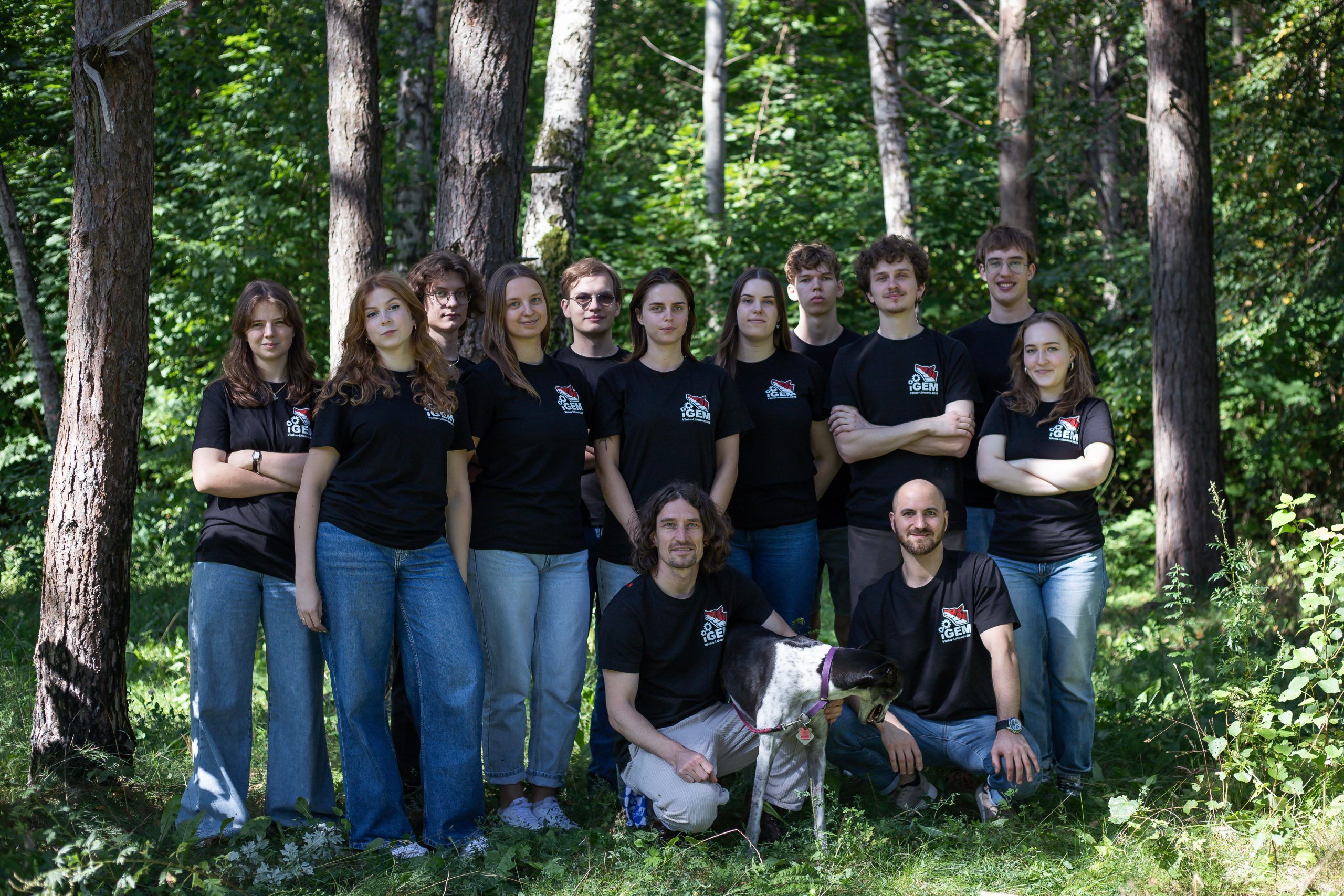Vilnius University Students Working on a Tool to Combat Tick-Borne Diseases, to Be Showcased at the International iGEM Competition
 Epidemiological disease surveillance is often associated with complex studies accessible only to top-level scientists, yet Vilnius University (VU) students prove that young researchers can also contribute to solving such problems. In its 11th year of participation, the Vilnius-Lithuania iGEM team is now developing an innovative tool to help track tick-borne pathogens – an issue relevant not only in Lithuania but across the globe.
Epidemiological disease surveillance is often associated with complex studies accessible only to top-level scientists, yet Vilnius University (VU) students prove that young researchers can also contribute to solving such problems. In its 11th year of participation, the Vilnius-Lithuania iGEM team is now developing an innovative tool to help track tick-borne pathogens – an issue relevant not only in Lithuania but across the globe.
The data collected with this tool could lay the groundwork for more effective prevention strategies, smarter allocation of healthcare resources, and more sustainable clinical practice. At the end of October, the VU students will present their scientific project, IXPOSE, at the international iGEM competition in Paris, which will bring together over 400 teams from around the globe.
A new tool for tick-borne disease surveillance
The IXPOSE project is designed to facilitate the collection of data on tick-borne pathogens. It aims to create an innovative field-ready test capable of rapidly detecting such pathogens. ‘The DNA extracted from a tick will be amplified through an isothermal reaction and recognised using a newly discovered biological system, TIGR-Tas, which works in a similar way to CRISPR-Cas. Such a tool would allow efficient monitoring of various tick-borne diseases and contribute to stronger public health protection,’ explained Areta Petrauskaitė, Team and Human Practices Lead at Vilnius-Lithuania iGEM and a fourth-year genetics student at the VU Life Sciences Center.
The team revealed that their primary goal was to develop a test that anyone could use to check, for example, whether a tick carries Lyme disease or babesiosis (a concern for dog owners). However, after consulting with experts, the representatives of the Vilnius-Lithuania iGEM team realised that such a tool would be neither sufficiently accurate nor useful.
‘When we presented our idea to specialists at the Infectious Diseases Center of the VU Hospital Santaros Klinikos, it became clear that our initial concept might cause more harm than good. Those meetings helped us refine our approach: we decided to focus on developing a test designed for scientists studying tick-borne diseases and their distribution in Lithuania. This gave our project a much broader vision: our tool will help scientists monitor not only well-known infections such as Lyme disease, but also rarer and less familiar pathogens, like bacteria of the Rickettsia genus,’ said the student.
Beyond the lab: seeking to inspire society through science
The aim of this project is not only to create a product based on synthetic biology but also to promote science. That is why the team’s work extends beyond the laboratory to include events, educational programmes, and camps. They strive to help the public better understand the life sciences and synthetic biology – the very foundation of the iGEM competition. Since the beginning of the project, this year’s team has already visited several children’s camps, participated in various events, and organised their own activities.
According to the students, it is not enough just to explain science; it is equally important to understand why some people feel distant from it or approach new discoveries with scepticism. Their outreach efforts aim not only to clarify complex topics but also to uncover the barriers that keep people from engaging more deeply with science.
One example is the team’s educational initiative – the ‘Trilogy of Life’ series of events, which invited participants to explore human identity, the senses, and our perception of reality. The project combined science, art, and experiential learning, offering new ways to reflect on ourselves and the world around us.
The Vilnius-Lithuania iGEM team has been competing in the prestigious international synthetic biology contest since 2015, consistently earning gold medals and twice taking home the grand prize. The Lithuanian team first gained recognition in 2017 with their project SynORI, which introduced a plasmid regulation system and won them the top award. The team claimed victory again in 2020 after introducing FlavoFlow – a rapid detection tool for the early diagnosis of diseases in fish farms.